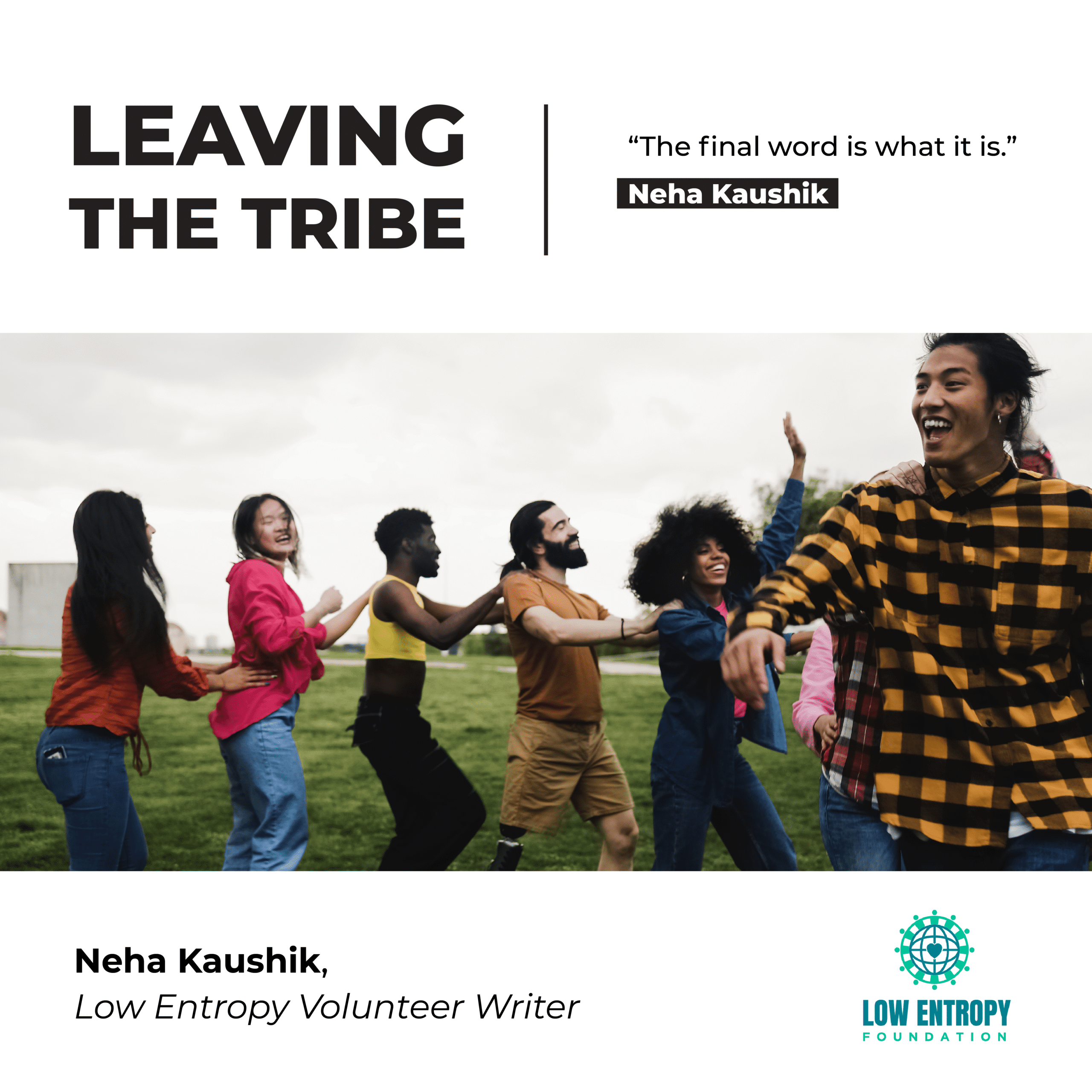Neha Kaushik, Low Entropy Volunteer Writer
The Cambridge Dictionary defines the word “convince” as “to cause someone to believe something or to do something.”
Convincing is like a coin, and which side of the coin you get depends on what kind of a person you are or what is happening around you. There are two elements intricately involved in this convincing business—validation and control. There may be more—humans are complex—but I have generally seen these two associated with the Tribe of Convincers. I may have as well been the queen of this tribe. Once.
For me, the coin didn’t land on either side. I got a little bit of both elements.
It’s almost incredible how validation can lead to the need to have control. It is the king of the hell you build for yourself. Today, as I live and breathe, I do not bother to convince anyone, no matter how loved, or how close they are. To understand why I got here, it is important to understand why I used to try to convince people.
Like any other human being, I too experienced moments when I wanted to share the good or bad with someone. When I experienced something beautiful, it used to feel incomplete till I shared it with someone. And I did, I shared.
The worst response you can get when you share like this is indifference or minimization of your feelings. This happened.
At other times, I would have this great point on my mind that could change the world (yes, I was going to change the world, like all of us in our teens and 20s felt we could). So I wanted others to see it, and understand it. When I put forth that point and someone shot it down bluntly, there went the world. I couldn’t save a point, let alone change the world. Was I bad at convincing people? My philosophy degree and numerous medals won would disagree.
You choose people you want to share special moments with carefully, and when they let you down, repeatedly, it is heart-wrenching. It’s a chicken and egg situation to try to answer whether it was the people who weren’t right or was my judgment in choosing people wasn’t sound enough. I am not interested in finding that answer either. When an uninsured house burns down, it doesn’t matter whether a short-circuit caused the fire or you left the iron on. It is burnt and you’re not getting a damn penny in compensation.
I started from an innocent place. When I was simply sharing with those I loved and cared about, sharing what I felt. Then somewhere down the line, it became a battle of proving what I felt had validity. I began trying to convince people, especially those I was in a relationship with. It no longer remained the sharing of feelings. I had more debaters in my life than I had friends and lovers who debated my experiences. I wanted validation of my experiences, as a normal human would, from the person they love. When that didn’t come, I wanted to control how my experiences were perceived.
The exhaustion of trying to make others see a point, to make them see what you see, even with those you so dearly love, ultimately got me. As I saw it, I had two options: I could choose misery, and I might have some lucky days when people would see what I was trying to make them, see or I could retire from the field of validation and control altogether.
I retired.
The decision to retire came from different places: disappointment, indifference and exhaustion. In the process, I made peace with myself so validation for the sake of validation was no longer required. There are still people I do and will love dearly; I do and will have sincere friendships. Nothing changed, except a part of me is now missing. My compulsion to form or feel connections where mutual sharing and validation were prerequisites is greatly diminished, if not destroyed. The journey to get here consisted of a lot of tears-in-the-rain kind of moments, like a brutal injury to that warm part of my soul that never got treated. It is hard to answer whether one person or many did it. It is impossible to answer when exactly I stopped even thinking about convincing other people.
If you don’t agree with my political, religious, personal, philosophical, moral or ethical views, you don’t have to. If you do, it’s all the same to me. Everything I want to hear, I am capable of telling myself with conviction. For the external world, I say my piece when I feel it must be said. I am still a functional part of social settings; I participate in discussions and conversations, and even debates, occasionally. There is no expectation of any response or outcome.
Some people tell me it’s a stoic way of being. Maybe so. I am not sure whether it is becoming numb or feeling something but enduring it so well that I do not need to show or do anything in response. If I had reached this state due to pure indifference, perhaps it’d be stoic.
The final word is what it is.
—
Leave your thoughts for Neha in the comments below. You can also follow us on Facebook, Instagram, TikTok, Twitter and YouTube to stay up-to-date with Low Entropy news!

